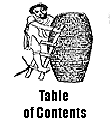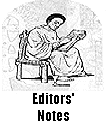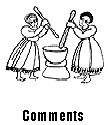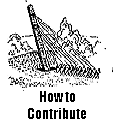
|
|
|
by Dr. Paulos Milkias Western-educated Ethiopians of the earlier generation who thought that Ethiopian traditional rulers could modernize the country without serious societal strains that might lead to revolution were clearly wrong. Ethiopia was run under a feudal system of government until the overthrow of Emperor Haile Selassie; and feudalism and modernization are by their very nature incongruous and cannot live side by side without creating fissures in the body-politic. Even Emperor Haile Selassie himself had realized this earlier when he said at the opening of Tafari Makonnen School in the 1920’s. "Ethiopia is like a sleeping beauty but is being awakened by modernization" which might lead to the overthrow of the old system in place - even his own government. The role of the Ethiopian educated intelligentsia in overthrowing a monarch or even a dynasty was not a new phenomenon, [refer to the fates of Emperors Ze-Dengel, Susneyos and Iyasu among others,] but rather a continuation of the role played by the traditional Ethiopian intelligentsia--known as Debteras who were church educated. Traditional power in Ethiopia involved the tripartite relationship of the monarchy, the church, and the Debteras. By virtue of being the custodian of the institution of education, the church supplied the monarchy not only with its pen, but also with its interpreters and justifiers of political legitimacy. In this sense, the educated had dual dependence. On the one hand, they hinged on the ecclesiastical hierarchy as a conduit to the secular powers. On the other hand, they aspired to win the favours of the secular powers from whom they received land grants which, through its pecuniary and symbolic values, gave them better status than the peasants from whose ranks they were raised. Despite the fact that to a certain degree the triple power relationship between the monarchy, the church and the Debteras favoured the monarchy, the Debteras had an important role to play in the Ethiopian body politic, for dynasties have risen and fallen through their direct political machinations. One important point to bear in mind here, is that all the time, feudalism was untouched; a change in monarchies and dynasties did not mean a change in systems. This, the author stresses, was the fundamental difference. The 1974 event was a mass movement which challenged and succeeded to tear apart a millennium-old system at its roots. The previous ones did not. In other words, whereas the former ones were coup d' états, the latter was a political revolution. With modern education came a new power relationship. As Ethiopia’s political history shows, starting from Emperor Tewodros, whose experiment in opening Ethiopia to "modernity" was cut short by his death at the battle of Makdala in 1868, Ethiopian monarchs had a strong desire to create a modernizing autocracy. The first ruler to embark fully on this course was Emperor Menelik, followed by Emperor Haile Selassie. Both relied heavily on Western type schools to produce a new type of intelligentsia and establish a new system of government. Even as long ago as the time of his coronation, Emperor Haile Selassie had eroded the traditional power of the Church, and the church intelligentsia, the Debteras, who were not required to help run or legitimize a modern system of governance. By this time, he had obtained handpicked bishops who were anointed by Alexandria. Thus, the relationship between the church and the monarch took a shape that Donald Levine (1965: 212-13) describes in Wax and Gold, as follows: In retrospect, it would seem that the most profound aspect of Haile Selassie's accomplishment has been to dislodge the transcendental religious value of loyalty to the Emperor. His mission has been above all a secularizing one ... the autonomous significance of the church has been reduced ... its function has been more closely than ever tied to the service and support of the Crown. It is, however, precisely that aspect which Levine overlooks that was the real source of power of the church: the monopoly of education. To say, as Levine does, that the church "has been more closely than ever tied to the service and support of the Crown" is hard to understand in the light of Ethiopian history. The church has always been strongly tied to the service and support of "the crown": whether the crown, was that of a Negus or a Neguse-Negest. In fact, by removing education from its domain and becoming his own minister of education, Haile Selassie took the most important step towards reducing the church into a non-political national institution; in other words, making the support of the church, for all practical purposes, irrelevant to his imperial power. What role did the Fascist interlude play? Indeed, it may be of interest to ask if the exposure of the aristocracy to the European environment during the fascist invasion of Ethiopia in any way contributed to the emergence of a new outlook, and therefore the birth of a new political order during the post-war period. One can certainly say that, with the sole exception of Ras Emeru, who even before the war was relatively progressive among the reactionary feudal princes (Haile Selassie, 1972: 48-149), members of the ruling classes who were either in voluntary exile or under fascist detention did not significantly alter their overall social and political perception. However, their life-style had undergone significant metamorphosis. Surely, the syncretic life-style that the upper aristocracy developed after their five years of contact with the European environment may be read hermeneutically to show how and what they perceived or misperceived of "modernity" and hence, what social-political views that specific cognitive process had produced. Within the framework of this author’s study, however, the most important consequence of that perception was the recognition by the aristocracy that western education would be more profitable to their children than the traditional one, an attitude that was no doubt reinforced by the Chewas' prevalent bias against all things debtera. The transfer of education of the children of the ruling classes from the church to the few western type schools thus became a watershed in modern Ethiopian history, for it produced a new aristocratic elite whose perception of politics was more secular. The socialization process of this new generation depicted the church essentially as an anachronistic religious institution with a mere ceremonial function. The image of the new political order was drawn in terms of a new ideology: Zamanawi-seletane (modernity), which meant modern institutions, modern schooling, and modern thinking. It is important to note that the Amharic word Zamanawi-seletane has an anti-clerical connotation. Emperor Tewodros first introduced Zamanawi-seletane into Ethiopia but the word did not come into general use until the reign of Emperor Haile Selassie. Indeed, not only was Tewodros anti-clerical, but he saw the development of Ethiopia as going necessarily against the influence of the church. Tewodros' urgent desire to secularize political life in Ethiopia, nevertheless, did not become a reality until Haile Selassie's accession to the throne. The consecration of the downfall of the church after the 1941 liberation was the recognition by the new elite, in spite of the Miaphysite faith's legal status as the state religion, of the principle of religious freedom. This was not in the sense of practicing Islam or Christianity, for the two are generally seen more as separate communities rather than as separate religions [an Ethiopian Orthodox for example would tolerate a Moslem more than a Catholic or a Protestant and vice-versa."] Rather, it was in the sense of the trend the newer generation of students and bureaucratic elite were taking: being a Christian without being an Ethiopian Orthodox, professing no allegiance to any religious denomination, being indifferent or questioning the essence of all religious dogmas. The principal cause [causes] for the chasm between young and old that evidently became unbridgeable until it lead to the fall of Emperor Haile Selassie’s government in 1974 is [are] also related to the above phenomenon: the incompatibility between the old and the new [feudal and modern] structures. But they all revolved around education. It is important to point out that Western education got its lettre de noblesse during the period of occupation. Ethiopians in all walks of life were, by then, convinced that a country which less than two generations ago had vanquished a mighty European army could not have been so speedily defeated had it not been for lack of modern education and know-how. The Italian Fascists succeeded to rout the Ethiopian army by the use of modern military weapons - hundreds of tanks and warplanes as well as poison gas. Adwa, which was fought on a level ground in terms of weaponry, could not be repeated. It was a bitter lesson they could never forget. Consequently, the nation embarked on a full-fledged acceptance of Western education. But through Western education also came a very intense Anglo-American cultural penetration. The first group of Western-educated intelligentsia integrated themselves into the feudal system, embraced western values and the American way of life. Haile Selassie hoped that the American free enterprise system would absorb those his bureaucracy could not. The missionary zeal that guided America's global policy of "containment" also created a situation whereby the U.S., in order to influence Ethiopian politics and particularly its youth, invested heavily in the educational sector. Thus, the feudal regime, the U. S, and the first generation of Western educated elite became necessarily interdependent. But with positions at higher levels filled up, technological progress moving at a snail's pace, Ethiopia trailing almost all African countries in its educational progress, the priorities of the government being distorted, and the failure rate in the school system dramatically rising, the new generation of intelligentsia that the liberal arts-oriented educational structure produced, became alienated. The alienation was reinforced by the fact that a conflict was developing between the newer generation of intelligentsia, Haile Selassie's feudal monarchy and the United States of America. From the outset, there was a seed of contradiction in this alliance and the ideological bond that tied them. American education, which molded the new Ethiopian intelligentsia, is rooted in the liberal-utilitarian tradition that promotes the values of metropolitan market economies. Autonomy and individual freedom--which forms the core of this liberal-utilitarian ideology--was accepted at face value by the new intelligentsia. However, these ideological values could not be implemented in Haile Selassie's Ethiopia which was a dependent, modernizing autocracy tied to a metropolitan nation (i.e., the United States of America). The contradictions involved are clear--dependency and autocracy are dialectically opposed to autonomy and individual freedom. In other words, the liberal education disseminated through the Ethiopian school system and the political ideals connected with it were negated by a dependent authoritarian system and the prevalent political realities in Ethiopia. There was also a further paradox. Since Haile Selassie's authoritarian system was guided by metropolitan capitalism, the alienated elite later came to reject the latter ideology. Furthermore, due to the fact that liberal education, which was the product of capitalism, could neither explain nor accommodate this apparent rejection, a segment of the Ethiopian intelligentsia, in their attempt to seek resolution to their paradox, turned to the socialist prism. They then employed socialist ideological and revolutionary weapons in their anti-feudal and anti-Haile Selassie political strategies. Ultimately, with their colleagues still within the educational system (and those working at the lower echelons of the bureaucracy) this new breed of Western educated intelligentsia, who were mostly students and teachers, ignited the sparks of the revolutionary ferment in the country, and all the military had to do in 1974 was deliver a coup de grace to Haile Selassie's feudal regime. We are now beyond feudalism: we have faced a bloody "Red Terror," a divisive civil war that lead to the dismemberment of Ethiopia. We are now in the throes of "Ethnicity" that threatens to tear us asunder even more. We are also faced with the uncharted ways of globalization which has brought with it myriads of problems we have to cope with if we have to survive in the 21st century. Can we cope? Can we change our attitudes and behaviours to harmonize with the unbridled chaos that has erupted in our midst? Attitudes and behaviours are hard to change at this age and time when we are in the throes of globalization and "future shock" that do not spare even so called 5th Worlders like us. Modernity knocks on our doors gleaming in two faces, one positive and the other negative. The first feature is avant-garde, dynamic, progressive, guaranteeing to deliver free choice and personal satisfaction, unparalleled material abundance, autonomy and self-determination. Here, there are potentials of alluring accolades and rewards for those who strive for it and have the aptitude to attain it... The other feature is blurred with environmental degradation, overcrowding, catastrophic contagion, and the spread of communicable diseases such as HIV/AIDS. A serene life, personal space, and privacy all go down the drain. Exodus from rural tranquillity to join the usual urban population upsurge increases "anomie," personal and cultural alienation, loneliness, helplessness powerlessness, meaninglessness, anonymity, homelessness and dehumanization. Mass media shapes peoples minds, sometimes using subliminal seduction, and thus breeding conformity and passivity All these lead to an inward looking individual, an automaton with raging problems within thus multiplying the number of people suffering with mental disorder, numerous souls falling back on chemical escape roots [e.g. Cocaine, Prozac, ecstasy etc] committing bizarre homicides [eg. Serial killings] and sudden suicides. The fragility of the nuclear family which slowly crumbles under an onslaught of rugged individualism, narcissism, extreme materialism, the abandonment religious precepts without any substitute, all direct individuals towards more hopelessness and meaninglessness thus opening the way for mounting conversions to bizarre cults [Jim Johns, Branch Davidians, the Solar Temple, Moonies etc.] This also steers individuals towards passively allowing them to be victimized and be trampled upon by any tin pot dictator like the ones that are found in abundance in Africa, Asia and Latin America. The solution? Your suggestions are as good as mine. The odds of defeating these negative developments are indeed exceedingly difficult. At the risk of being labeled overoptimistic, however, I would suggest to you to stick to the age-old Ethiopian values. They may not give you total shelter — not quite, but they will hopefully keep you grounded in your roots and provide you with some armour that protects you from modern day "Anomie" which breeds the pathologies that surround us. For this, the author is obliged to refer the reader elsewhere. [1] Dr. Paulos Milkias is a professor of Political Science at Concordia University in Montreal, Canada. Paulos Milkias © 2002 --------------------------------- [1] For these values, see my article which was based on my speech to the Ethiopian youth in the Diaspora entitled: "The Values of Ethiopianness and Contemporary Ethiopian Youth in the Diaspora", The Ethiopian Review, Vol. IV, No. 6, September- October, 1997. |

|

|

|

|

|
| © Copyright SELEDA Ethiopia, July/August 2002. All Rights Reserved. |
